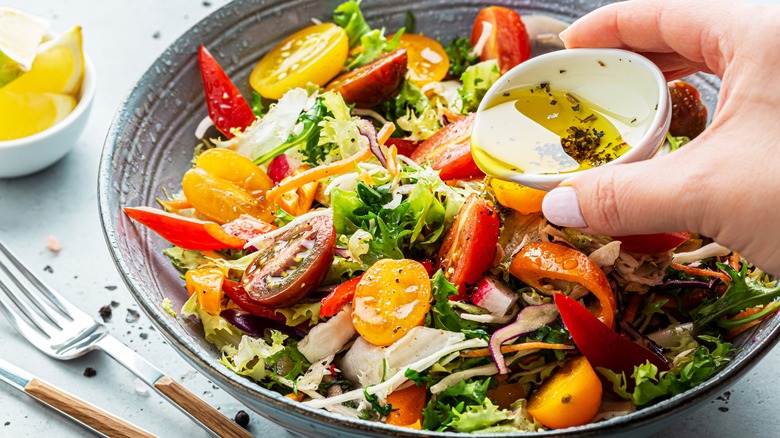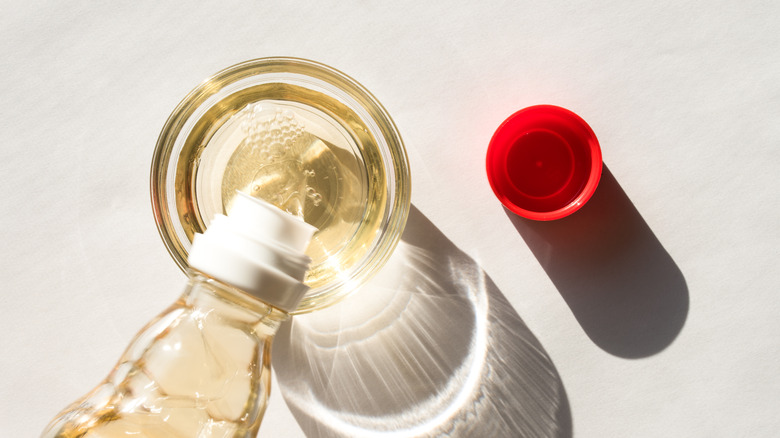The Vinegar You Should Be Using For Less Acidic Salad Dressing
Who doesn't love a good salad? Whether spilling over with tender green leaves, hearty roasted vegetables, chopped fresh fruit, toasted nuts, or perhaps some combination of all of the above, salads bring a refreshing dose of nutrition to our plates — and bring us one step closer to getting in those CDC-recommended two to three cups of veggies per day (via CDC). If you regularly toss together salads at home, hopefully, you've also graduated to whisking your own dressings, as well.
Almost uniformly more delicious than anything coming out of a shelf-stable plastic bottle at the supermarket, salad dressings from Caesar to ranch are also quick and easy to make at home. Of course, different salads call for different dressings. If you plan to serve a delicate salad that might be overpowered by a sharp vinegar such as white vinegar or sherry vinegar (via Preserve & Pickle), you'll want to reach for a gentler, less acidic choice for your dressing.
Rice wine vinegar offers a gentler bite
If you've ever made cold sesame noodles, Napa cabbage salad, or other Asian-inspired dishes at home, then you've no doubt got a bottle of rice wine vinegar on hand. Also known as rice vinegar, rice wine vinegar is, as its name indicates, vinegar made from rice wine, and is commonly produced in the rice farming-intensive Asian regions of China, Japan, Vietnam, and other countries (via Baron).
Unsurprisingly, this mild-tasting vinegar is used in a plethora of dishes prepared across Asia, from General Tso's chicken to Korean beef stew. Lower in acid than many other kinds of vinegar — starting at about 4% acid content as opposed to 6% or 7% (via Preserve & Pickle) — rice wine vinegar is also a great choice for salad dressings that you might prefer to keep on the mild side, according to blogger Jessica Smith of Inquiring Chef.
"When I'm creating a new recipe and feel like it needs a little something more, I often find myself reaching for a bottle of rice vinegar," Smith told American Express Essentials. "It typically has lower acidity than other types of vinegar, which means you get more flavor with less of a tart 'bite.'" So whether you're specifically mixing up a salad dressing with other Asian ingredients such as salty plum powder or whether you're simply seeking a mild dressing for delicate green such as sprouts or mache, rice wine vinegar just might make your next vinaigrette sing — softly, of course.

